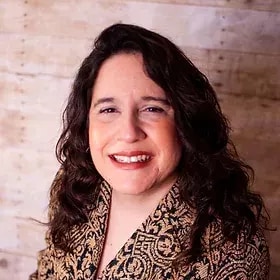In July, Indiana Yearly Meeting (IYM) decided to withdraw from Friends United Meeting (FUM), the international association of 26 yearly meetings in North America, Africa, and the Caribbean. IYM cited a desire to focus more precisely on its Christ-centered mission, according to an undated letter signed by Patrick Byers, general superintendent of IYM, and Greg Hinshaw, presiding clerk of IYM.
IYM arrived at the decision to separate at its annual sessions in July after years of discernment, according to the letter. Indiana Yearly Meeting hopes to continue to financially support FUM’s missions in Africa.
The letter explains:
A few years ago, Indiana Yearly Meeting adopted this statement as its mission: Creating environments that empower churches and individuals to be disciples of Jesus Christ and to make disciples of Jesus Christ. Indiana Yearly Meeting recognizes that many Friends within FUM are theologically aligned with our mission, but many others are not. Over the years, given what we see as growing differences, many in IYM have found it more and more challenging to feel that all Friends within the body that is Friends United Meeting are aligned with this mission. We believe that this affects ministry and programming at all levels. IYM has made this decision, not out of ill will or anger, but out of a true desire to be as focused as we can possibly be in our mission.
Byers and Hinshaw did not reply to emails seeking comment.
In the August 30 edition of Friends United Meeting’s weekly newsletter, FUM discussed IYM’s withdrawal:
Indiana Yearly Meeting and many of their members have given sacrificially to support FUM’s general budget and missions programs. Most importantly, they have joined us in prayer as we carry the concerns of Friends around the world. Their service, giving, and prayerful support have helped FUM embody our mission to gather people into fellowships where Jesus Christ is known, loved, and obeyed as Teacher and Lord. For this we are thankful. Indiana Yearly Meeting’s withdrawal of their membership is a loss felt by the entire FUM community. Indiana Yearly Meeting has helped FUM steward our identity as “orthodox Friends.” While the demographics of FUM’s membership are changing in North America and the wider world, FUM’s commitment to uphold our Christ-centered witness and service has not changed.
FUM presiding clerk Sarah Lookabill said in an email that commenting before FUM’s general board meeting in October would be “premature.” FUM general secretary Kelly Kellum also said in an email that it would be preferable to comment after the October general board meeting.
At one point Indiana Yearly Meeting was the largest yearly meeting in the world and was a founding member of what became Friends United Meeting in 1902. In 1912, IYM’s active membership was 20,000, but had dropped to 3,017 members by 2012. Ten years ago Indiana Yearly Meeting underwent a reconfiguration in which 15 monthly meetings left to form the New Association of Friends. Forty-five congregations and two Latino church plants remained in Indiana Yearly Meeting, which retained a membership of just under 2,000 Friends, primarily in Indiana and western Ohio.
Several Quaker historians identified general theological and cultural differences between Indiana Yearly Meeting and Friends United Meeting.
Asked to describe the difference in perspectives on Jesus Christ between Friends in FUM and Friends in IYM, Stephen Angell, professor of Quaker studies at Earlham School of Religion, said, “Until very recently the answer would have been very little or none at all.”
Historical changes that took place in three steps caused a difference to evolve, according to Angell.
Approximately 60 years ago, meetings in the East Coast of the United States reunited after the 1827 Orthodox-Hicksite schism, according to Angell. Hicksite Friends generally hold a more universalist view of Jesus Christ than Orthodox Quakers do. By 1967, five of these yearly meetings had become dually affiliated with both FUM and the more theologically liberal Friends General Conference; such affiliations have been a longstanding source of tensions within FUM.
About 20 years ago Philip Gulley, a Quaker author and recorded minister in Western Yearly Meeting, an FUM-affiliated yearly meeting composed of Friends in western Indiana and parts of Illinois, wrote about Jesus Christ as a non-divine prophet and moral teacher. Gulley is the author of more than 20 books of fiction and nonfiction, as well as monthly essays in Indianapolis Monthly and The Saturday Evening Post. Conservatives in Western Yearly meeting attempted—unsuccessfully—to get Gulley removed from recorded ministry. As a result of this controversy, nearly a dozen conservative monthly meetings left Western Yearly Meeting and joined Indiana Yearly Meeting, according to Angell.
The third shift occurred over the past decade when each of the five North American pastoral yearly meetings experienced the departure of more liberal monthly meetings because they were open and affirming of LGBTQ+ people and relationships, according to Angell. The liberal monthly meetings remained part of FUM despite losing membership in a yearly meeting.
Theologically and culturally conservative Friends from Indiana Yearly Meeting do not want to be “unequally yoked with unbelievers” such as theologically and culturally liberal Quakers, said Max Carter, William R. Rogers director of Friends Center at Guilford College, emeritus.
“It is as much sociology and culture as it is theology,” said Carter.
FUM served as a common ground for respectful disagreement, according to Carter, who grew up in FUM and was a member of Indiana Yearly Meeting for ten years, where he served as clerk of the Social Concerns Committee. Carter is currently a member of New Garden Meeting in Greensboro, N.C., which is part of the North Carolina Fellowship of Friends.
Some Quakers in FUM do not define themselves as Christians, according to Thomas Hamm, emeritus professor of history and Quaker scholar-in-residence at Earlham College. Members of Indiana Yearly Meeting want to be part of organizations that promote a literal interpretation of Scripture and oppose same-sex relationships. Some Friends in FUM argue against same-sex marriage and others believe that interpretation of the Bible should evolve over time and lead Quakers to affirm LGBTQ+ relationships.
“There is considerable diversity in Friends United Meeting,” said Hamm.
Indiana Yearly Meeting wishes to continue supporting missions in Africa because members feel a theological and cultural affinity for Evangelical Friends churches on the continent, according to Carter. Carter noted that Indiana Yearly meeting has a history of mission projects, including those aimed at educating Black Americans in the U.S. South.
The most profound impact of the separation is severing ties of fellowship, according to Carter.
“I’m very, very sad because we’ve lost friendships,” Carter said.




1 thought on “Indiana Yearly Meeting Withdraws from Friends United Meeting”
Comments on Friendsjournal.org may be used in the Forum of the print magazine and may be edited for length and clarity.